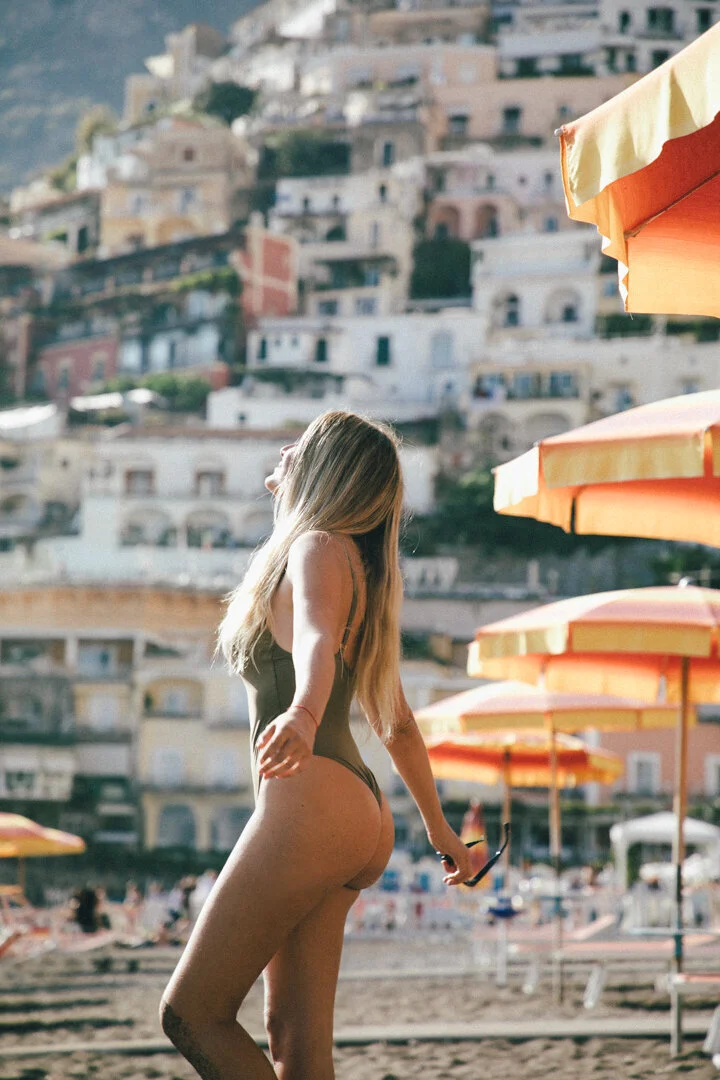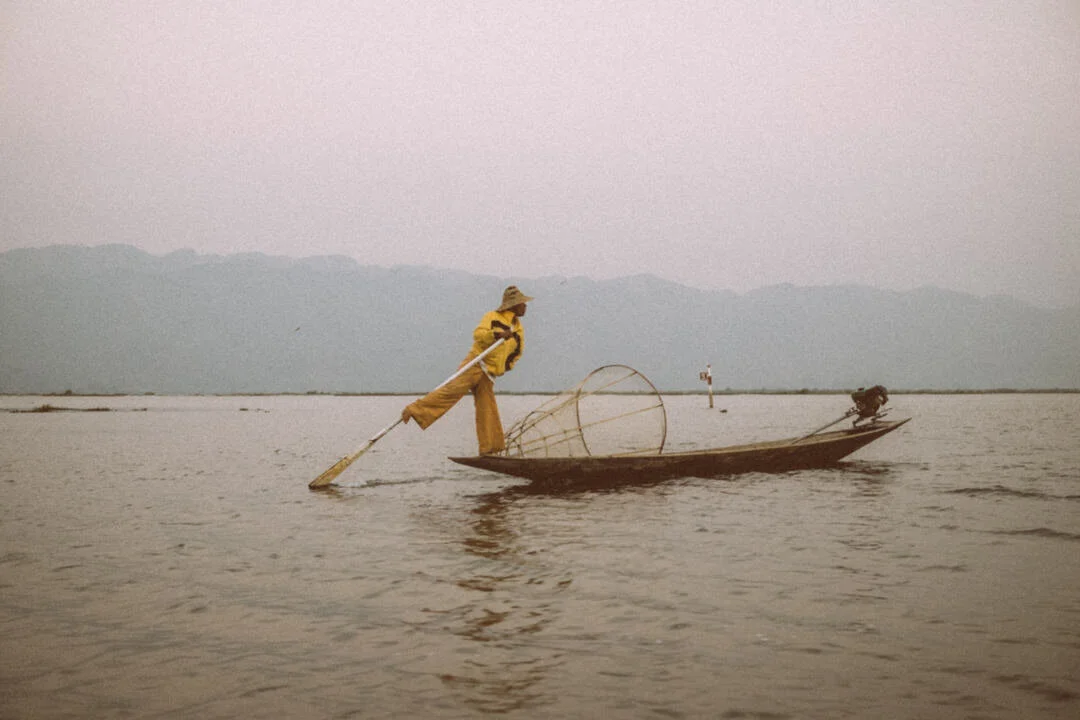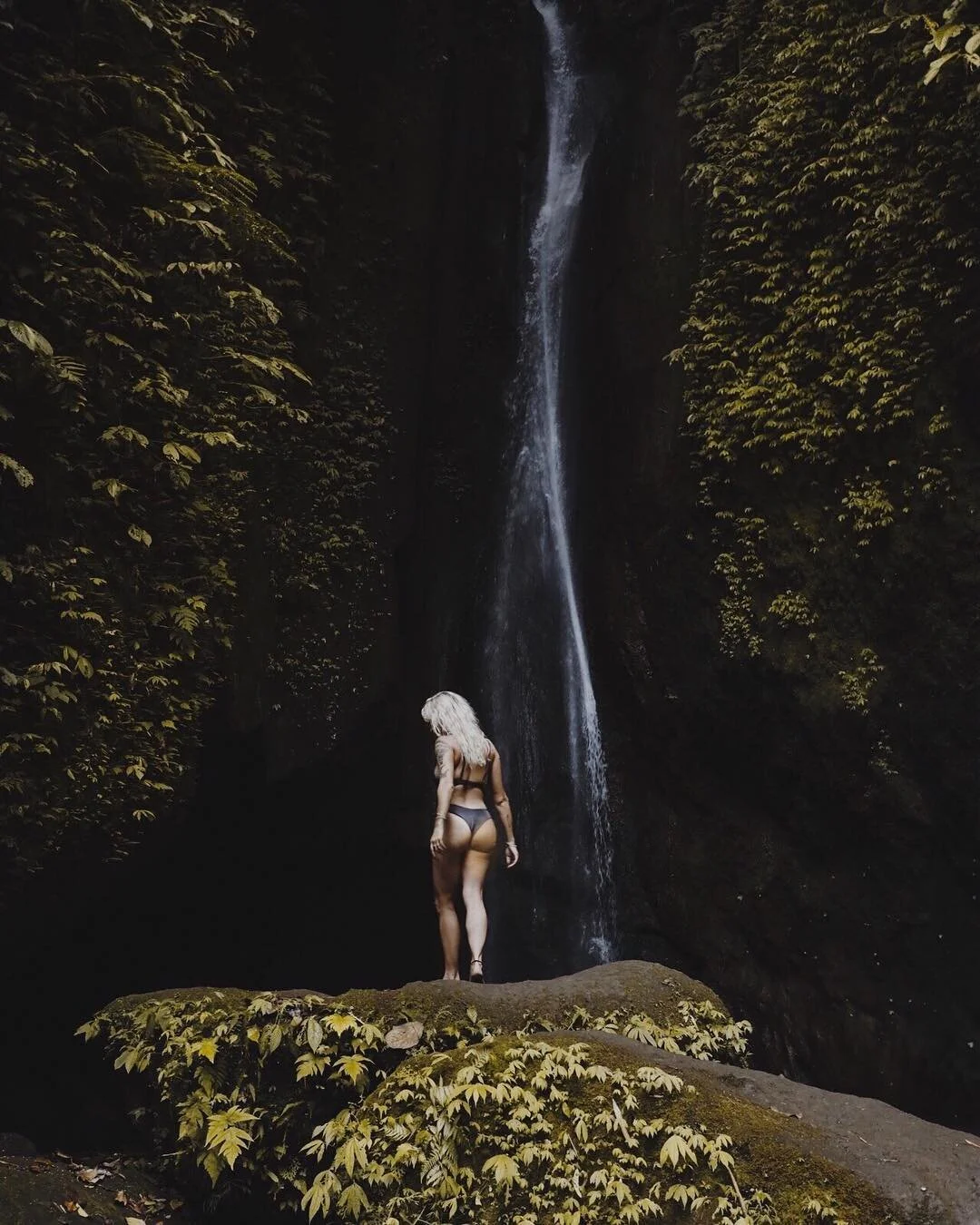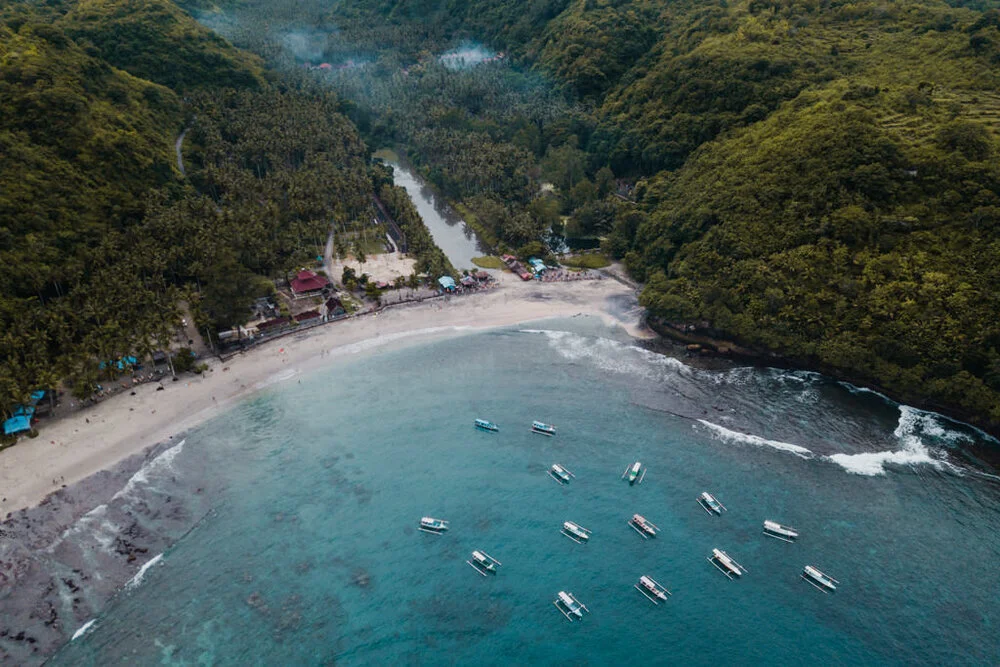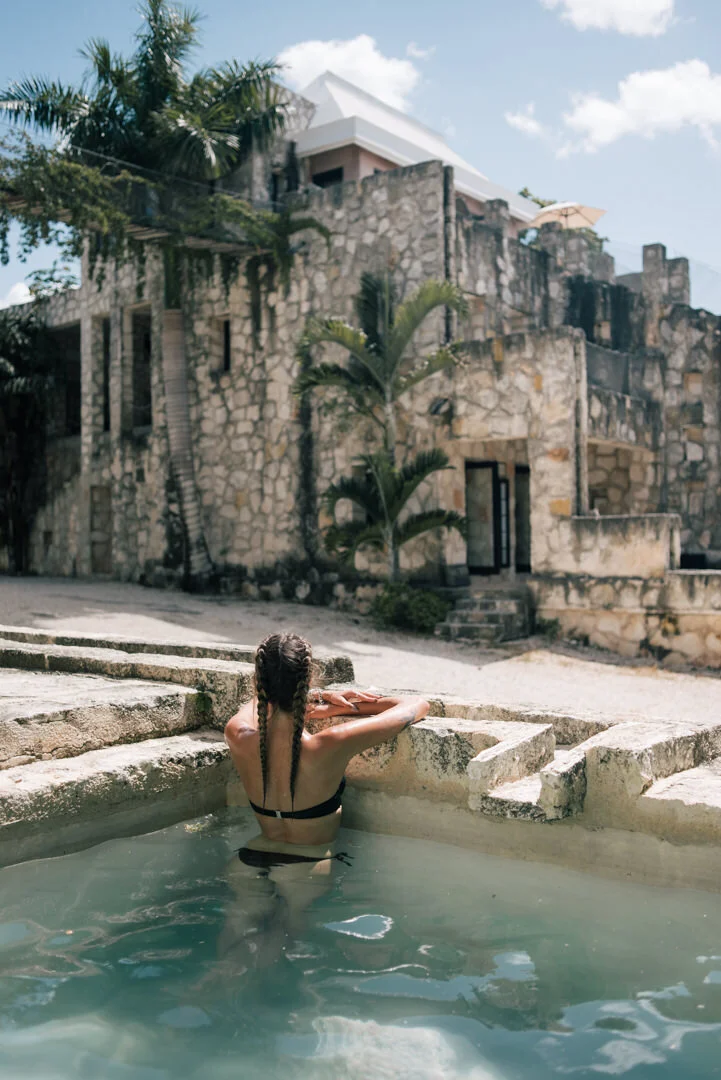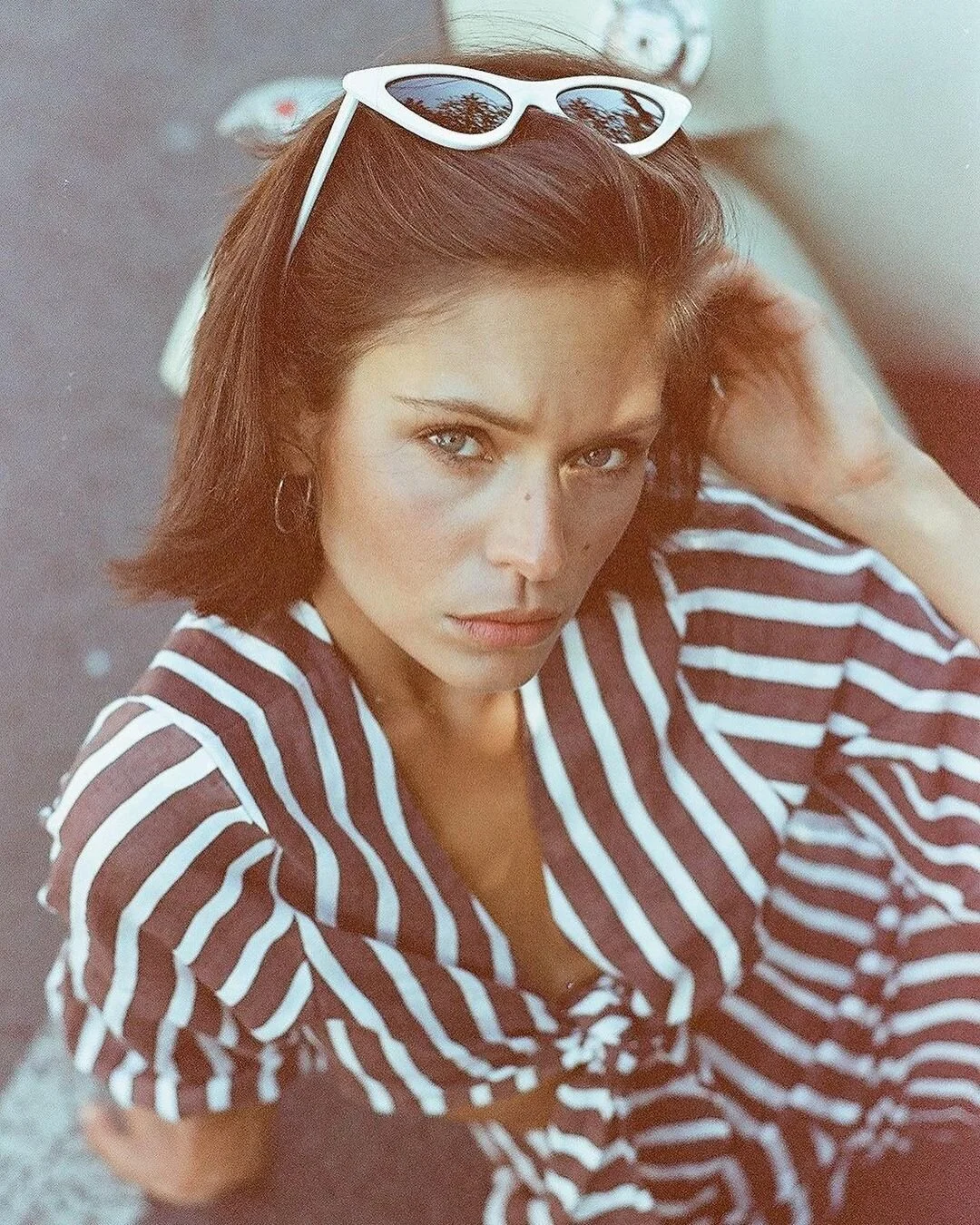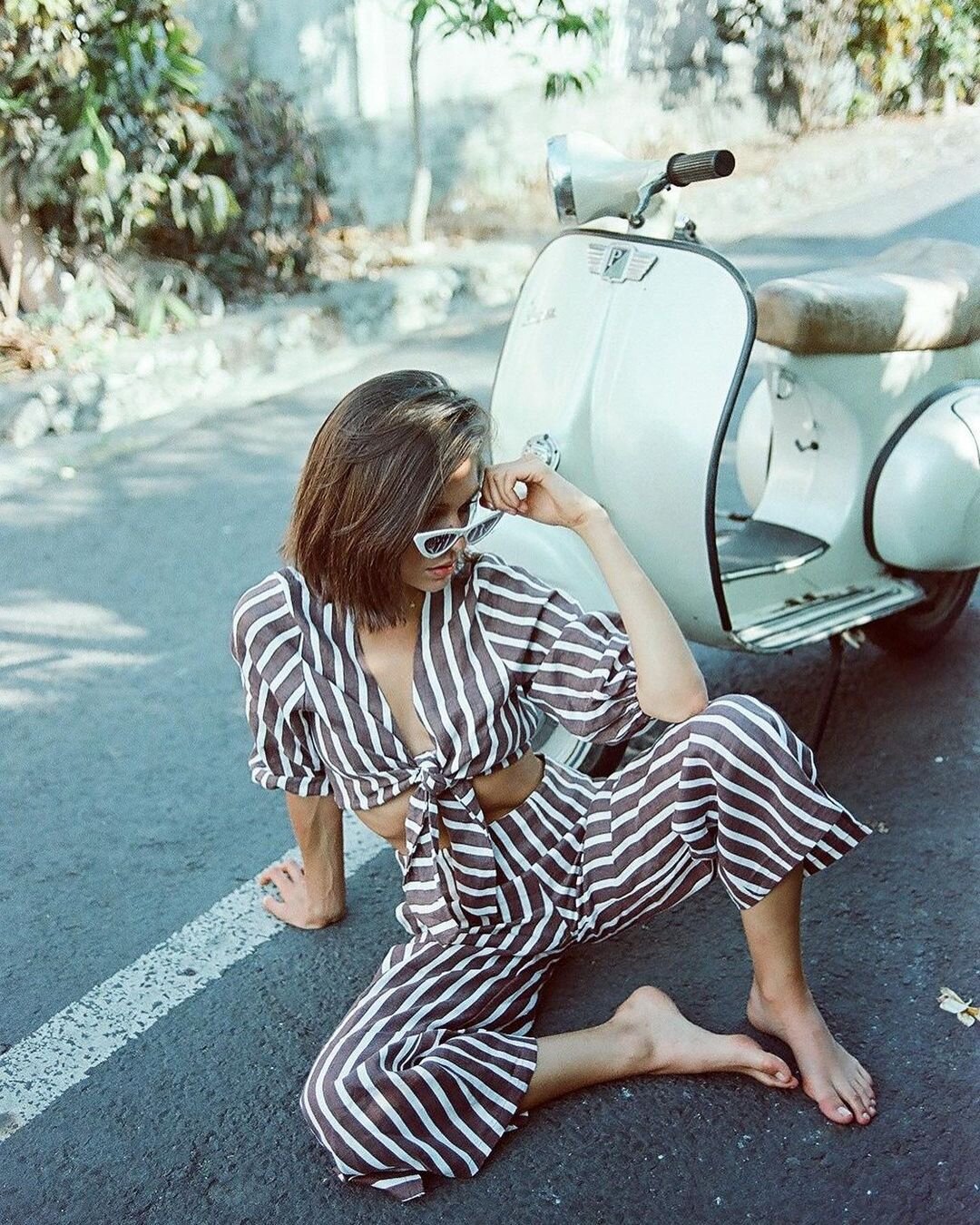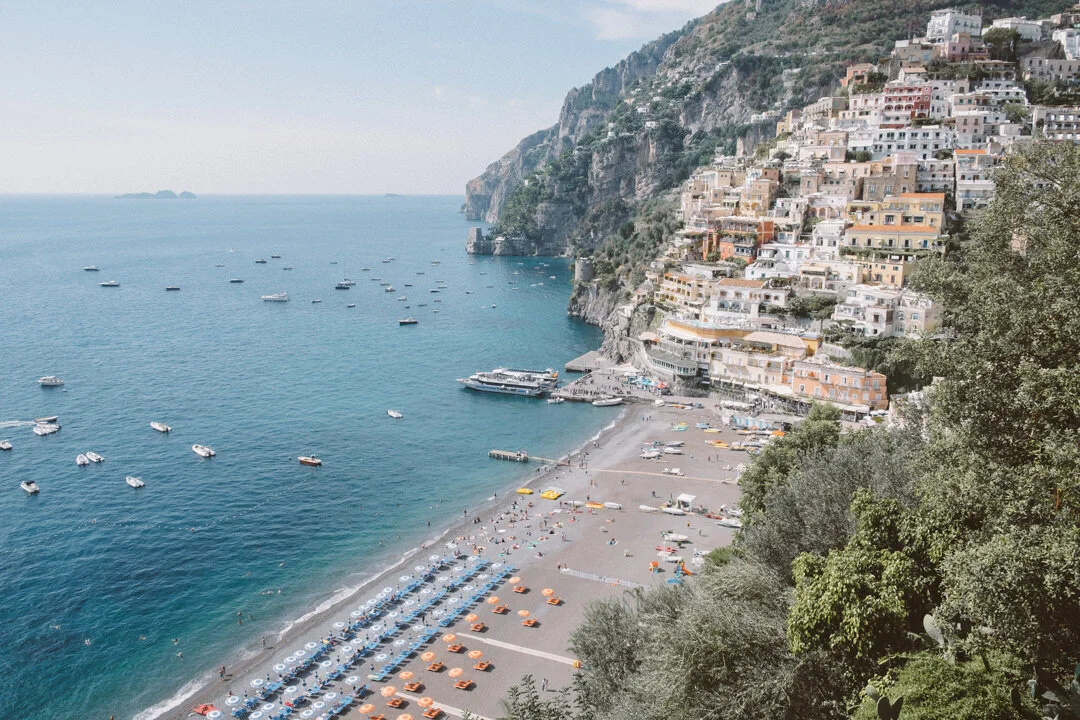Samanta Katz
Of all the social media marketing strategies, few clock in as unconventional as creatives wading into the professional white collar world of LinkedIn. Photographer Samanta Katz, however, remains undeterred. And for good reason. Her objective, spelled out in plain type in the banner of her LinkedIn profile, is simple: “help amateur photographers struggling to start a freelance business find clients, set up systems, and monetize their passion.” It’s an uncomplicated value proposition, the clincher statement that might pique the interest of any number of the world’s budding creatives, all wondering many of the same questions:
How does one set up a creative business legally? How would you price your content as a new photographer? Where do sponsorships come from, and how does one go about negotiating them? And besides that, what’s the line between ‘influencers,’ and photographers, and photographers who are also influencers, and vice versa? How do all those worlds intermingle and overlap? How does one get paid?
In all her content, and in the business course she teaches, Samanta doubles down on the nitty gritty of how money is actually made, all the real-life, almost taboo topics that most creatives with a handful of followers seem, oddly enough, to shy away from.
Swipe briefly through her social media feed and you’ll find no shortage of heartfelt posts, each one a candid meditation on an aspect of the independent entrepreneur lifestyle, or something even more personal. There are bolded titles like 𝗠𝘆 𝗹𝗼𝘃𝗲 𝘀𝘁𝗼𝗿𝘆 (𝘄𝗶𝘁𝗵 𝘁𝗿𝗮𝘃𝗲𝗹𝗶𝗻𝗴 𝘁𝗵𝗲 𝘄𝗼𝗿𝗹𝗱), 𝗖𝗼𝗺𝗺𝘂𝗻𝗶𝘁𝘆 𝗼𝘃𝗲𝗿 𝗰𝗼𝗺𝗽𝗲𝘁𝗶𝘁𝗶𝗼𝗻, and 𝗪𝗵𝗮𝘁 𝗱𝗼𝗲𝘀 𝘀𝘂𝗰𝗰𝗲𝘀𝘀 𝗹𝗼𝗼𝗸 𝗹𝗶𝗸𝗲 𝘁𝗼 𝘆𝗼𝘂? In these posts, she expresses all of it with confidence and an unself-conscious clarity that’s rare on platforms like these.
“I’d post my own work and get very little engagement, but then I’d post a photo of me traveling, or a personal story, and it’d be way higher,” Samanta says. “I used to get so mad at that, but eventually I realized it’s not personal. Social media is actually about the social aspect of who you are. Showing yourself online in a genuine way, sharing your personal experience, really makes a difference.”
For the full conversation, where we discuss the true lives of travel influencers, relocating from Canada to Bali, and the crucial importance of defining your own version of success, read on.
What made you want to make Bali, Indonesia your home base?
I moved to Canada when I was 16, and I was pretty mad about the whole thing. My parents decided to immigrate, so we left Argentina and I left all my friends (and my whole life) behind. It took me years to feel at home in Winnipeg, Canada. And it wasn't just the language barrier — it was a complete cultural shift. So basically, ever since I moved to Canada, I wanted to leave. I knew it wasn’t my forever place.
Over the years, however, I got more comfortable, and eventually started my business there, which allowed me to travel. If i’m being honest, I feel like I got a bit sidetracked by all the traveling: I had this goal to visit 50 countries before I turned 30, and it was really easy to do that at that point. I would leave, travel, come back, and still have work. It was easy. But I knew that at some point I was going to have to move. What I love about Bali is that it's really easy to come and go. I spent two years dipping in and out of Bali before I decided to do settle here. Every time I would arrive, it would take me about 10 minutes to rent a motorbike, get a SIM card, find a place that I liked to stay. That's it. No long-term leases. No things you need to sign. It's a life of short-term commitment, but somehow you still feel grounded. I realized that if I moved here, I could actually move fully without necessarily having to give up a lot of the real-life things that I had in Canada. And that’s the hardest part of moving: the bureaucracy and the paperwork.
In your LinkedIn bio, you say you went from “part-time server and full-time student to self-employed and doubling your income within the first year of business.” What were the key pieces that enabled you to make that change in your life?
It’s funny, because a version of this question came up a few days ago in the program I’m teaching. I had a girl ask me, “What advice do you have for somebody who's working a good full-time job, and making money, but doesn’t have time to start her photography career?” I said, “You're not going to want to hear this, but you need to quit your job. Give it a full go.” I saw some of my own story in her situation: When I finished photography school, I got a job as an in-house photographer for a fashion brand. It was a 9-5 office job, and I hated it. I was shooting e-commerce, so the model would wear some clothes, I’d snap the photos (front, side, back) then she would change. We did that eight hours a day. No change in lighting, background, or anything else. No creativity involved. It was also a horrible company to work for, but everybody around me kept saying, “You’d better hold onto this job because there aren't too many full-time photography jobs. This is your best chance at success.”
In the back of my head, I remember thinking, “If this is what success looks like, I don't want it. If this is life, I need to figure something else out.” I hated the idea of holding onto a job, and then that the rest of my life would be two weeks vacation a year and hoping for a raise. It took me about a year and a half into that full-time job to work up the guts to quit. My rationale was, “Once I get enough freelance work on the side, then I’ll quit.” But of course, when you're working 40 hours a week, there's no time to develop business. Eventually I just said ‘fuck it.’
I had enough savings to get me through three to six months making nothing. But it was still scary. I had a new mortgage. I wanted to travel and I didn't know if I’d ever be able afford it again. But quitting is the only thing that turned my freelance work into my real job. I had no other choice but to make it work. I told myself if nothing picks up, I don't mind going back to serving, bartending, or working in a coffeeshop. But right now, I have to give it a full go.
The funny thing is, after I quit, it was way easier. It was a lot of work, but it wasn't hard to find enough work. When you’re determined, and you have to make enough money to survive, you hustle. You introduce yourself as a photographer and suddenly everybody around you knows you as a photographer … and the work starts coming. It’s kind of like your signal in your brain that this is what matters the most. If you recognize that that thing is your only way to make money, your brain starts picking up on every single opportunity. It’s [by way of] the reticular activating system (RAS). Every day we’re overwhelmed by information — seeing things on the street, on TV, on our phones — but we only really pay attention to the things that matter to us, individually. It's kind of like the algorithm, but it's built into your brain. For example, if you get a new pair of shoes, then all of a sudden you might see them everywhere. When you take a stance and say, “I am a photographer — this is my full-time job. I need to find work,” you start seeing all the potential opportunities, all the places where there could be people who want to hire a photographer.
“I've worked with travel influencers before and their life is not as glamorous or luxurious as we might think it is.
They have to capture everything, and it’s absolutely exhausting to use your life as your income strategy.”
I don’t often see people in entrepreneurial, creative fields using LinkedIn with much success. What made you pick that particular platform?
As a traveler, I was always trying to pick up commercial work with brands and companies that I could work with on the go. I’m into the idea of connecting with brands around the world and being able to produce for them. I did a lot of trial and error on Instagram, and ultimately what I found is that it’s confusing for brands to interact with a photographer on Instagram, because they’re so used to dealing with influencers or bloggers. I’d reach out and they’d say, “We can’t pay you, but we can do a collaboration and maybe send you some free clothes.” And I thought, “Well, I don't want free clothes. I'm a photographer.” Or they’d ask, “Well, why would we pay you if you have less followers than we do?” They were just crazy conversations.
Finally I clued in to the fact that I was using the wrong channel. Brands don't hire photographers on Instagram. They hire influencers and content creators. LinkedIn popped into my head by way of one of my friends here in Bali who does a lot of network marketing. She said, “You should be on LinkedIn because you could be connecting with brand owners and marketing directors.” That was my aha! moment. I realized I could connect with my potential clients there. Eventually it evolved from that, because currently, on top of my photography, I'm also teaching. So I started using LinkedIn to connect with other photographers as well. I’m still using Instagram and FaceBook, of course, but I’ve found that people take you more seriously on LinkedIn. Plus, it’s more about the business side of things, which is what I'm trying to focus on.
You’ve worked across fashion, editorial, portrait, and travel photography. These days, however, it seems like there’s a lot of advice telling creatives to double down on a niche, get hyper-focused on one market. How do you feel about that trend towards specialization?
I always work with people and I always photograph people. Even if I'm doing commercial or editorial or portraiture, I am 90% of the time working B2B. If I'm doing a portrait, it's usually a portrait with an entrepreneur who's using the images to promote a course, an online business, or something similar. So although it seems like I’m doing a bit of everything, in a way I'm still just a commercial photographer photographing people in different ways. And because I travel, it's easy for other people to label me a travel photographer, but that’s not really the case. I'm not out photographing landscapes, destinations, activities, tourists. I just kind of take my work wherever I go. Or I find work wherever I go.
You're a commercial photographer who travels a lot.
Exactly. And that doesn’t mean I wouldn’t try travel photography, but I'm not the kind of person who wants to wake up at 4:00 AM and drive two hours to get the right lighting, in the right location, to get the perfect photo. Hire fixers and do setups and all that. It makes me tired just thinking about it.
I've worked with travel influencers before and their life is not as glamorous or luxurious as we might think it is. They have to capture everything, take photos of everything. It is absolutely exhausting to use your life as your income strategy.
To me, travel photography is National Geographic. It’s photographers going out on assignment to photograph farmers in Vietnam. That’s the kind of stuff that drew me to travel in the first place, but I never figured out how to bridge the gap and get paid for that kind of work. That was a big lesson for me, by the way, and something I still teach people today: People think what you do, the work that you love, and how you make your money has to be the same thing 100% or you're not a success. That is not the case. I've been making my living as a photographer for 10 years, but some of my favorite shoots were not paid. Some of my favorite images were collaboration. And some of my highest-paid gigs will never be in my portfolio, because they don’t represent me.
It's not the perfect correlation that people think it is. You can do the kind of photography work you want, and then you can go get paid doing the kind of photography work that gets you paid, and you are still a professionally working photographer. It’s okay.
“My lifestyle and my everyday life is my priority. And my happiness is a much more important goal than my career goals.”
That's a really unique perspective, and I admire your honesty. Makes me think of all the music festivals I shot for free, and how jealous I used to be of the Getty concert photographers out there on assignment. I would hustle for weeks or sometimes months just to get a media pass, and they’d stroll at the last minute in like it was nothing to them, just another day at the office.
Here’s the thing: We only see the tip of the iceberg. You have no idea if those photographers like their job or if they had to do another hundred jobs they hated to get to that one. They might not even enjoy the show. They might never see their family. They might never be able to say ‘no’ to a job and be constantly on airplanes. There's so much we don't know. All we think is, ‘That person has the job that I want.’
We define success based on our own belief system. What success looks like, that's different for every person. Living in Bali, I've met influencers with hundreds of thousands, even millions of followers. Some are really happy, but many aren’t. Their struggles are maybe different than ours, but everybody has their own. I used to sit at home a couple of years ago thinking, “Wow, all these influencers are getting the jobs that I want with the brands that I want to work with. They don't care about talent. They care about followers.” At some point, I had to redefine what success looked like to me and what I wanted from my life. I realized that it wasn't just about working with name brands like Nike or Coca-Cola or shooting the cover of Vogue. It was about doing work that I love and enjoying the way that I did my work, making enough money to live the life that I want, and living in a certain way. And honestly, since I moved to Bali, if you asked me what I’d be doing if I were a millionaire … I’d be doing exactly the same thing. I love my life and I wouldn't change it for the world. I don't have to be a millionaire to live it.
Tell me about your teaching program. What drew you to that instead of going after bigger and bigger jobs for yourself?
On one hand, I realized that the lifestyle I wanted was here in Bali, and I wasn't going to pursue those big career goals here. I remember having a conversation with one of my friends who lives in New York City, and she was like, “Sam, if you want to get into editorial photography with bigger brands, you have to move to New York or LA. Period.” And I was just like, “No. I want to live in Bali.” My lifestyle and my everyday life is my priority. Those are my goals. And my happiness is a much more important goal than my career goals.
For me it’s very personal. My mom passed away six years ago from cancer. Between her getting sick and passing away, it was only about 10 months. It shifted my priorities and it made me realize that I actually don't give a fuck about having my name in a magazine or my photos on a billboard. It’d give me satisfaction, but it isn’t what I chase every day. What I chase every day is waking up and looking for life. That’s what makes me happy, sharing moments with people, traveling the world, and spending time with my friends and family.
As soon as I moved to Bali, I realized that the digital nomads (people who work on their laptops online) have it figured out. As a photographer, if you want to travel and work, you have to find work wherever you go. That’s way harder than already having your work and being able to do it on a computer. A few years ago, I remember wondering, ‘Wouldn't it be cool if I had an online job I could do from anywhere?’ I love spending time in Europe, but finding work there is difficult. I love spending time in Argentina when I go visit my friends, but the Argentinian peso is basically worthless. I wanted a different way to make money and diversify my income. And I always loved teaching, breaking down concepts and ideas and watching people get it. The moment when someone understands how exposure works, or the relationship between aperture, shutter speed, and ISO, and their eyes go wide … I live for that.
Initially I built an online course to teach [Adobe] Lightroom, and that helped me learn how to do marketing: building a funnel, landing pages, etc. In the back of my mind, though, I knew I wanted to teach the business. Anybody can teach the technical skills, lighting, or how to use a camera. There are so many courses available. But I felt like I had a different perspective when it came to building a creative business.
If this worked for me, helped me build the life of my dreams and a career that I love … maybe there's value in it for somebody else. I wanted to be someone who could answer the tough questions: tell you how many photos to give to a client, how to handle somebody who doesn't want to pay up, how much to charge for your services, what to look for in potential clients, what to put in your portfolio, whether you should or should not have a social media presence. All that. I had no idea if it would work, but I knew people always asked me how to build a successful photography career.
I did a coaching program myself to learn how to position this online, because honestly I had no idea how to use the internet to sell anything. I invested in the education to figure out the things that I didn't know, and it paid off. It was a three month program called ‘How to Launch an Online Business in Three Months.’ We started in January, went ‘till late March, and then by early April I was working towards the big launch for my own program. I'm like still kind of in awe that I managed to build an online business like that, but that’s where most of my focus is these days. Tuesdays I teach, and then Thursdays we do a coaching call and a Q&A. It's so rewarding to watch my experience serve somebody else. It feels like it's bigger than just me now. I'm super, super happy.
It says a lot that you were humble enough to take a course yourself before launching your own program.
It took me years before I was willing to invest in myself like that. But honestly, business coaching is the best investment I've ever made. It's so easy to just sit around and be like, “Ah, I'll do that one day.” If it wasn't for the program I did, I would have never launched my own, and I would have never pivoted my business to online.
That’s also part of what pushes me to share personal stuff on social media. If somebody's going to decide to work with me, pay me money, be coached by me, learn from me, I want them to feel 100% that can trust me. If I'm not being genuine, it doesn’t serve anybody. I have 17 students on the current program, and each one of us sat on a call and chatted before we decided if it was a good fit.
That was the biggest lesson for me: people buy people, whether in photography, online coaching, or whatever it is. It’s all the same thing. They all knew from the beginning that I keep it real and honest. Last week we had the Q&A and they were like, “How was your shoot?” And I was like, “Actually, it was shit, and let me tell you why. And let me tell you how I fixed it. And let me tell you why this shoot was still a success even though I fucked up.” Being able to share all that just makes me feel good. I don't have to pretend that I'm some big-deal fashion / travel photographer. I'm very real with all my students. And the best part is helping them realize that they’re on the right path, doing the right things. That alone makes it all worth it.



